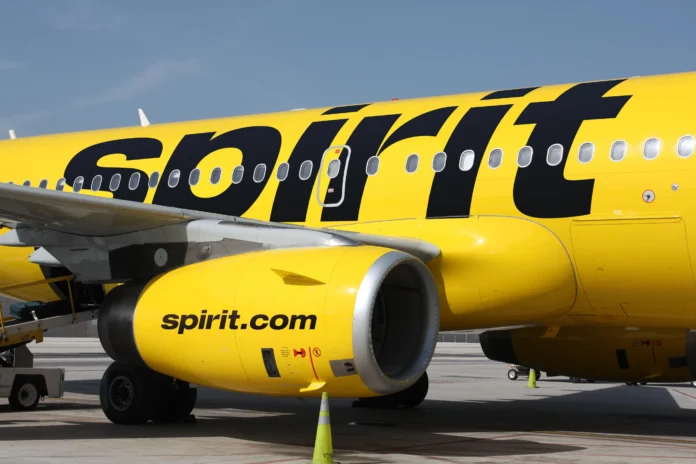Spirit Airlines is facing serious financial uncertainty only months after emerging from bankruptcy protection. The Florida-based low-cost carrier has raised fresh concerns about its ability to continue operations over the next year. In its latest quarterly report, the company cited weak domestic demand, high capacity, and falling cash reserves as key challenges. The Spirit Airlines going concern issue signals renewed pressure on the airline’s recovery plan. Executives expect market headwinds to persist through the year.
The carrier reported that elevated competition in the domestic market has driven fares lower, hurting revenue. Leisure travel demand has weakened, especially during the second quarter, creating a tough pricing environment. The Spirit Airlines going concern warning comes after recent cost-cutting measures, including furloughing about 270 pilots and demoting another 140. Management says these steps aim to conserve cash and protect the airline’s core operations. However, they acknowledge that operational uncertainty remains high.
Spirit Airlines had filed for bankruptcy protection last year after years of financial losses, failed merger talks, and heavy debt. It was the first major U.S. airline to do so since 2011. In March, it exited bankruptcy under a court-approved restructuring supported by creditors. Despite this progress, the company now faces fresh liquidity challenges. Executives are under pressure to reassure investors and maintain passenger confidence.
Economic factors are also adding strain. Uncertainty from President Donald Trump’s tariffs and budget cuts has impacted consumer spending. Travelers have begun rethinking vacation plans, affecting ticket sales across the sector. Spirit Airlines says these external factors compound the financial challenges it is already facing.
In addition, the airline revealed that its credit-card processor requested more collateral to continue their agreement, which expires at year-end. If Spirit fails to provide it, the company risks losing that partnership. Losing the deal could further tighten liquidity at a critical time. Management is exploring ways to strengthen its cash position, including selling aircraft, monetizing real estate, and shedding excess airport gate capacity.
The Spirit Airlines going concern risk also reflects uncertainty over meeting the minimum liquidity requirements set by lenders. Ongoing negotiations with stakeholders will play a major role in determining the company’s future. Executives emphasize the importance of reaching agreements quickly to avoid further operational disruptions.
Ultimately, Spirit Airlines is in a race to secure cash and stabilize operations before market pressures intensify. The next year will determine whether the carrier can avoid a return to bankruptcy court.
For more business updates, visit DC Brief.


